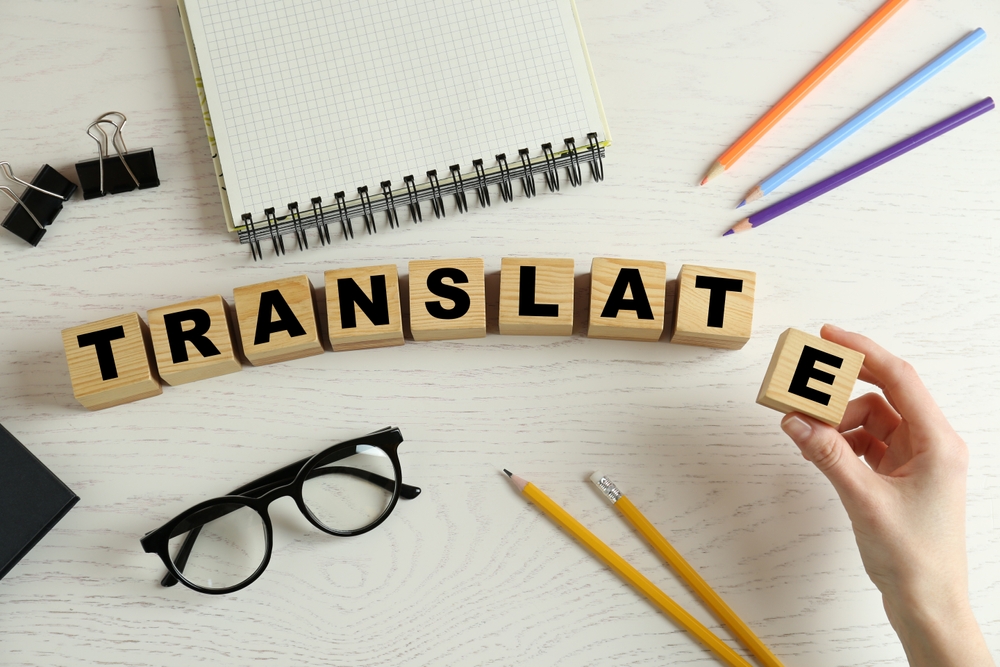
How Well Do You Need to Know a Language to Be a Translator?
As the world becomes increasingly interconnected, the demand for translators is rising. But how well do you need to know a language to be a translator?
In this blog post, Etcetera Language Group, Inc. explores what level of language skills you need to be a translator, how to improve your language skills, and the requirements to be a translator. So if you’re interested in becoming a translator, read on!
What Language Skills Do You Need to Be a Translator?
There are different types of translation, each with its own level of difficulty and required skill set. The most common type of translation is a literal, or word-for-word, translation, which is used for things like technical manuals or legal documents. This type of translation is the most difficult, as it requires a deep understanding of both languages to maintain the original meaning.
The second type of translation is interpretive or paraphrased translation, which is used for things like literature or poetry. This type of translation is easier, as it allows for more creative interpretation by the translator.
How Can You Improve Your Language Skills?
The most obvious way to improve your language skills is to take a language course. There are many different types of courses available, from intensive courses that last several months to evening classes that last a few weeks. You can also find online courses and apps that can help you learn a new language or brush up on your skills.
Some language courses are aimed at specific audiences, such as businesspeople or students planning to study abroad. These courses usually include vocabulary and grammar relevant to the needs of the students. Other courses are more general, covering the basics of the language and giving students a chance to practice their speaking, listening, reading, and writing skills.
Intensive courses are typically offered in the summer months when students have more time to dedicate to learning a new language. These courses usually meet for several hours each day and include both classroom instruction and opportunities for students to practice their new skills with native speakers. Evening classes typically meet once or twice a week for two hours at a time and are typically offered during the academic year. Online courses can be taken at any time and usually allow students to work at their own pace.
Self-Study
In addition to taking a course, there are many ways you can study a language on your own. One option is to find a tutor who can help you with your studies; another is to join an online community of speakers of your target language. There are also many resources available online and in libraries, such as dictionaries, grammar books, and textbooks.
If you’re studying on your own, it’s important to create a schedule and stick to it as much as possible. Dedicate some time each day or each week to studying, and make sure you set aside enough time for practice as well as theory. It can also be helpful to find someone who speaks your target language fluently and who is willing to help you with your studies; this could be a friend, family member, or even someone you meet online.
Translation Experience
One way translator candidates can gain experience is by working with audio files, which is a common task for translators. This could involve transcribed or translated audio files, or both. Many online resources offer audio files for translators to practice with, and some language courses also include audio files as part of their curriculum.
Another way to gain experience is by working with documents that need to be translated. This could involve translating documents from one language to another or revising translations that have already been made. Many online resources offer documents for translators to practice with, and some language courses also include documents as part of their curriculum.
Finally, it’s also important to get experience working with the software and tools that translators use daily. Many of these tools are available for free online, and there are often trial periods available for paid software.
What are the Requirements to be a Translator?
To become a translator, one must have excellent language skills in both the source and target languages. In addition, a translator must be able to effectively communicate concepts and ideas between the two languages. Furthermore, a translator must have a strong understanding of cultural differences and be able to adapt their communication style accordingly. Finally, a translator must be able to keep up with changes in both the source and target languages as they evolve.
It is not necessary to have a formal education to work as a translator. On the other hand, the majority of translators hold a bachelor’s degree in translation or a closely related subject, such as linguistics or foreign language studies.
In addition, many translators also have years of experience working in their chosen field before becoming certified translators.
How to get Certified to be a Translator
There are several certification programs available for translators. The most common is the American Translators Association’s (ATA) Certification Exam, which is offered in over 50 language pairs. To be eligible for the ATA exam, candidates must have at least two years of full-time professional experience translating or interpreting in their chosen language. Candidates who pass the ATA exam are awarded the designation of Certified Translator (CT).
Other certification programs include the National Board of Certification for Medical Interpreters (NBCMI) and the Certification Commission for Healthcare Interpreters (CCHI). Both of these programs offer certification exams for medical interpreters who wish to demonstrate their proficiency in working with patients and medical staff in hospitals and clinics.
Conclusion
If you need help with language and translation, Etcetera Language Group, Inc. offers high-quality certified translation services that can help you distribute your content to people all over the world. Contact us today if you want to connect with global audiences and break down language barriers Etcetera Language Group, Inc. is here to help.
More...
Categorised in: Language Details, Language Services





